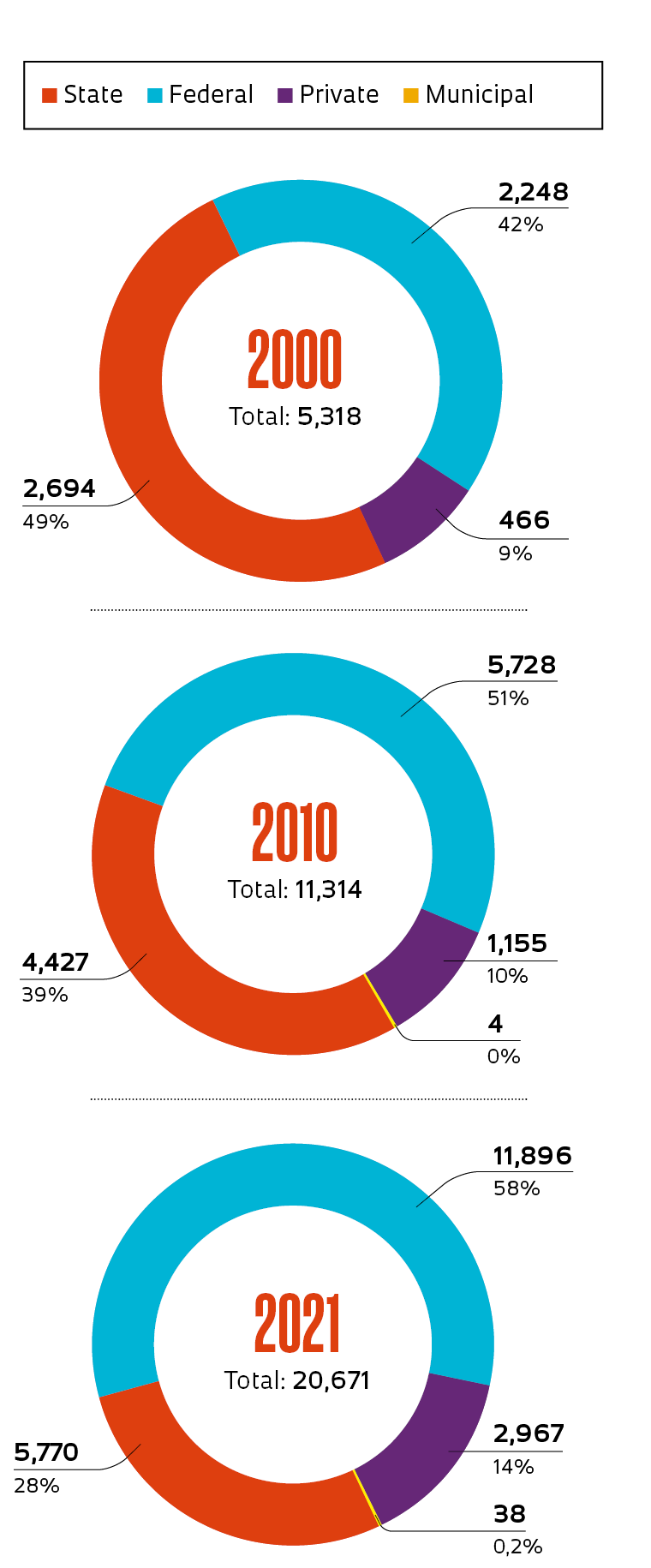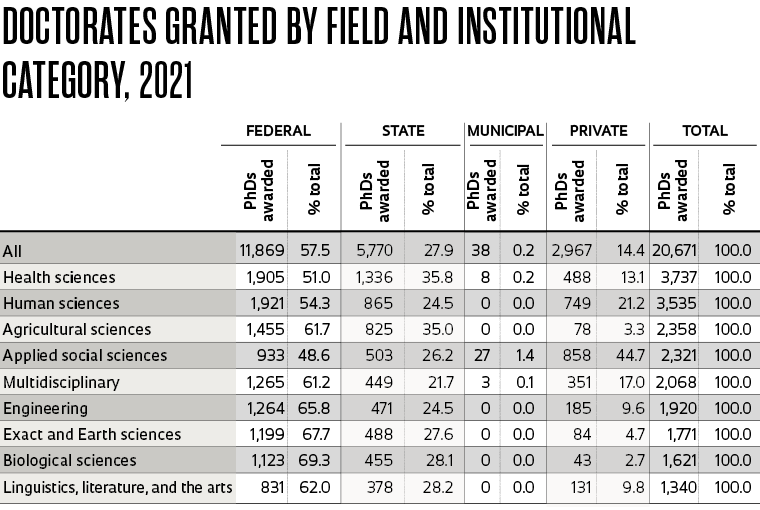- In Brazil, 20,671 doctoral degrees were awarded in 2021, 3% more than the previous year (20,066), but still 15% below the number earned in 2019 (24,422). This suggests that despite the small increase between 2020 and 2021, the negative effects of the pandemic continue to have an impact on PhDs
- The situation is part of a long-term trend associated with doctorates being awarded at different rhythms according to the institutional category and field of knowledge
- Despite the recent drop, the number of PhDs awarded in 2021 is substantially higher than in 2000 (+289%) and 2010 (+83%), a rise reflected across all institutional categories but with varying intensities
- The category to award most doctorates changed from state institutions (49% in 2000) to federal institutions (58% in 2021). In the same period, private institutions increased in proportion from 9% to 14%
DATA
Doctorates

- Of the main educational fields defined by the Brazilian Federal Agency for Support and Evaluation of Graduate Education (CAPES), health sciences led the way, followed by human, agricultural, and applied social sciences
- At the opposite extreme were linguistics, languages, literature, and the arts, and in ascending order, biological, exact, and Earth sciences and engineering, with multidisciplinary courses separating the two groups
- Federal institutions accounted for more than 50% of PhDs in all major fields, except for applied social sciences, for which private institutions awarded more (45%). This field includes programs related to business administration, economics, and law
- Doctorates from state institutions are better distributed across all fields, with an emphasis on health sciences and agricultural sciences

Sources Geocapes/CAPES, data extracted on 10/15/2022. Prepared by the FAPESP Studies and Indicators Team (DPCTA)
Republish